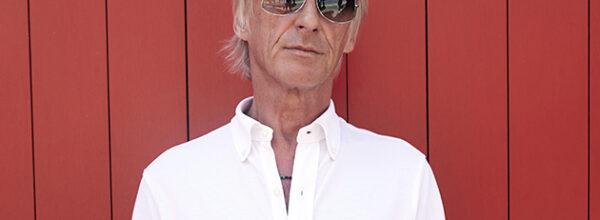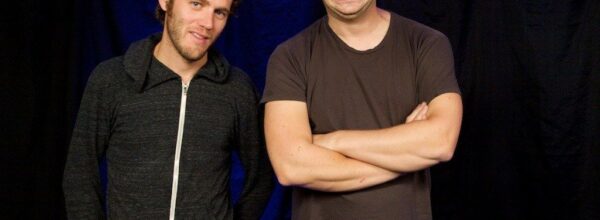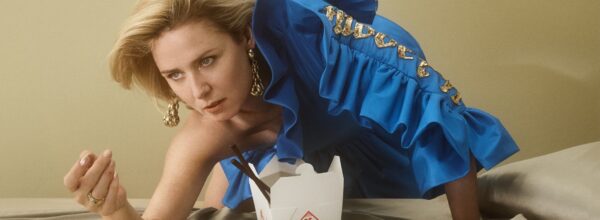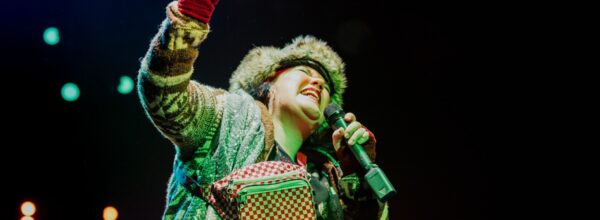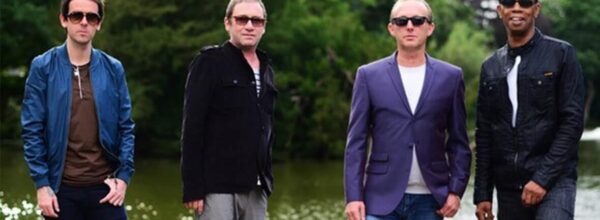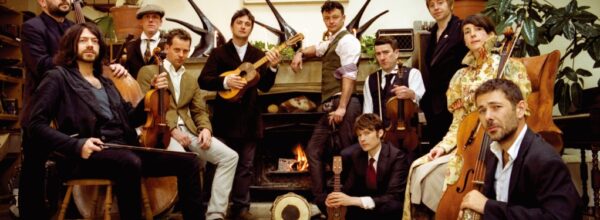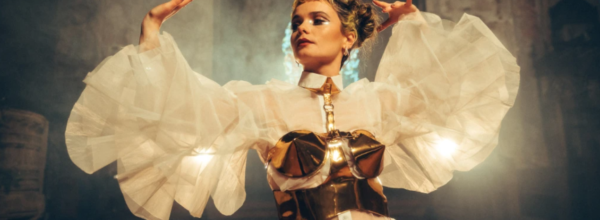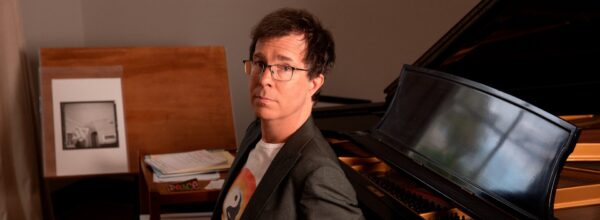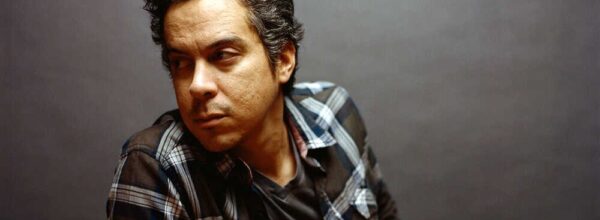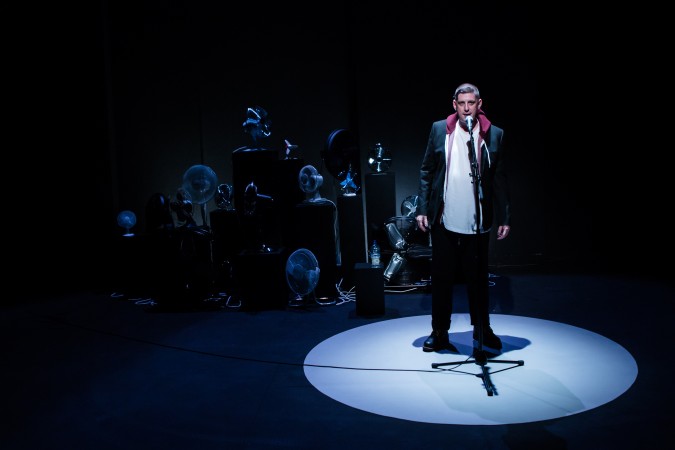 Having last experienced his thoughtful verbatim piece ‘Stand’ as part of Bristol’s Mayfest season earlier this year, writer and performer Chris Goode’s original approach to theatrical storytelling was obvious. ‘Men in the Cities’ is a show that sees Goode contradict the plurality of its title by performing the multi-character story as an 85 minute monologue piece. Though billed as a “portrait of how we live now”, Goode’s focus on disappointment, dysfunction, loneliness and anger is a self-consciously bleak comment on the dark side of modern masculinity.
Having last experienced his thoughtful verbatim piece ‘Stand’ as part of Bristol’s Mayfest season earlier this year, writer and performer Chris Goode’s original approach to theatrical storytelling was obvious. ‘Men in the Cities’ is a show that sees Goode contradict the plurality of its title by performing the multi-character story as an 85 minute monologue piece. Though billed as a “portrait of how we live now”, Goode’s focus on disappointment, dysfunction, loneliness and anger is a self-consciously bleak comment on the dark side of modern masculinity.
Using the morning of Thursday 23rd May 2013 and the emerging news of British soldier Lee Rigby’s murder as its starting point, the show begins as an overlapping sprint through the glimpsed lives of several male urbanites. After the minutiae laden beginnings of alarm clocks, gum ulcers and cereal bars caught between teeth, some of the characters are pushed into the periphery; focus falls mainly on troubled homosexual Ben, 73 year old widower Jeff who only has a black doll called Prissy for company and Rufus, a ten year old boy who is already a keen viewer of pornography.
As well as the murder of Lee Rigby, and cursory explorations into the motivations of extremist behaviours, the show deals with another death in the form of Ben’s suicide. A paternal disconnect, as alluded to when lover Matthew points the finger of blame at Ben’s father Brian, is mirrored in Goode’s relationship with his own father when he breaks away from the fictional narratives to incorporate first person accounts of his life. This device allows Goode to briefly reference the writing process, such as when he reveals his difficulty in capturing the scene of Ben’s suicide.
Using brief moments of darkness and changes to the lighting levels, Goode shifts neatly between his characters and, in the show’s first half particularly, admirably executes the feat of compelling storytelling through interchanging monologue. A scene, however, making reference to Philip Seymour Hoffman, Woody Allen and Malaysia Airlines Flight 370 builds to a crescendo that feels a little gratuitous and disconnected from the other narratives.
The play is almost relentlessly gloomy, such as with a long nihilistic rant from Brian that sees Goode leave his microphone and stride about the stage like a wounded animal. He uses modern reference points to paint a bleak picture of our times; one character no longer buys milk from the newsagent because he can get it for 4p cheaper at Costco, we hear that “we cannot survive on 3D printing alone” and Rigby’s murder offers ample opportunity for tabloids to exercise their curious melding of moral outrage with a pun-based headline.
However, Goode’s script is also peppered with quips and amusing asides that are absolutely necessary in making the play work; of course, without them, the show would be a senseless trawl through nihilism. In expressing incredulity at Ben being circumcised, Matthew is described, not as anti-semitic but as someone who just “really likes foreskins”, alarm clocks are the “only things that can be hit with impunity” and David Cameron is described as a “pudding faced jam rag”.
Though one cannot exactly agree, in its disregard for the sunnier side of existence, that ‘Men in the Cities’ is an accurate portrayal of masculinity in the current age, Goode’s originality nonetheless shines through. It is this, and the essential scattering of humour, that makes the show a palatable, if challenging slice of theatrical despair.
Scott Hammond
